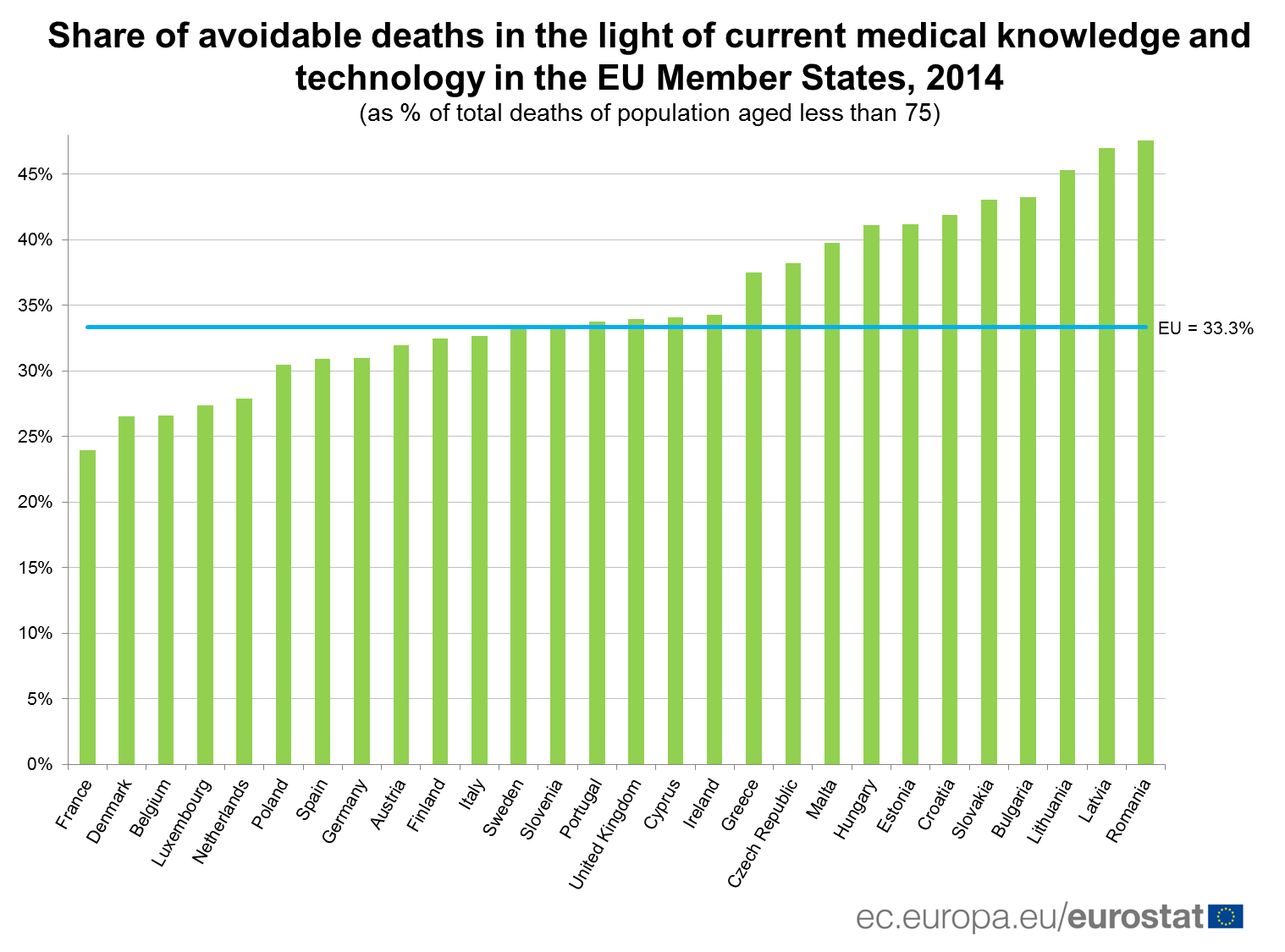Eurostat: how many deaths could have been avoided in the EU?
Over 33% of the deaths registered within the European Union in 2014 were premature. According to a recent report published by Eurostat, 1 in 3 deaths could have been avoided in the light of medical knowledge and technology.
In 2014, 1,7 million people under the age of 75 died. 560,000 of these deaths can be considered premature, according to the European Statistics Office.
Heart attacks were the leading cause of these deaths: 178,000 of them, or 32% of the total number of deaths that could have been avoided in people under the age of 75.
The following causes were strokes – 16% (91,000 deaths), colorectal cancers with 12% (66,500 deaths), breast cancers – 9% (50,100 deaths), hypertensive diseases – 5% (28,700 deaths) and pneumonia – 4% (22,800 deaths).
The highest rate in the EU regarding deaths that could have been avoided was found in Romania – 47,6%. The country was closely followed by Latvia (47%), Lithuania (45,3%), Bulgaria (43,2%) and Slovakia (43,1%).

Above the 33,3% EU average were Portugal, Great Britain, Cyprus, Ireland, Greece, Czech Republic, Malta, Hungary, Estonia and Croatia.
On the other hand, the lowest percentages were found in France (24%), Denmark (26,5%), Belgium (26,6%), Luxembourg (27,4%) and The Netherlands (27,9%).
On the other hand, the World Health Organization (WHO) recently pointed out that around 1,2 million teenagers die every year around the world from causes that can be prevented. Around 3,000 teenagers aged between 10 and 19 die every single day, with road accidents, respiratory infections and suicide being the main causes.
Most of this can be prevented though, by improving medical services, education and social support, WHO emphasised.